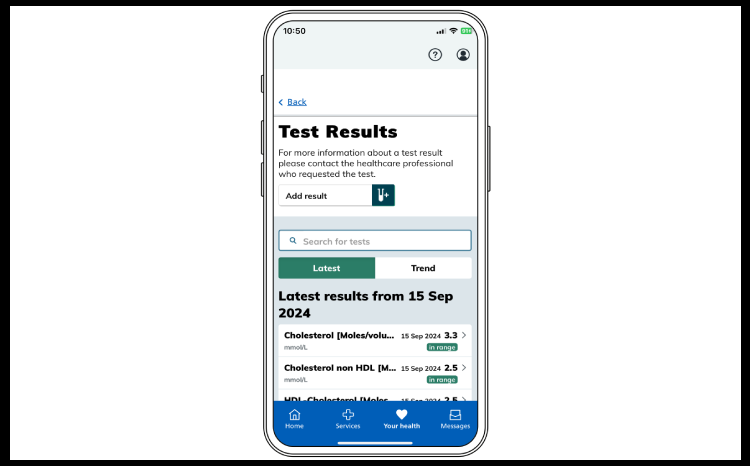Queen’s speech: Government to ‘lay foundations’ for more integrated care
- 11 May 2021

The government will “lay the foundations” for a more integrated health and care system, the Queen said in her speech to parliament today.
Reiterating plans to embed Integrated Care Systems in law – leaked earlier this year – Her Majesty introduced the Health and Care Bill, which also aims to reduce bureaucratic processes in the health service.
The bill addresses the need for innovation in the NHS to deliver more efficient and affordable health care.
“My Ministers will bring forward legislation to empower the NHS to innovate and embrace technology. Patients will receive more tailored and preventative care, closer to home,” she said.
The bill aims to drive more joined up care by ensuring every area in England is covered by and Integrated Care System (ICS).
According to a background briefing on the Queen’s speech, the bill will make it “lay the foundations for a more integrated, efficient and accountable health and care system – one which allows staff to get on with their jobs and provide the best possible treatment and care for their patients”.
“Making it easier for different parts of the health and care system, including doctors and nurses, carers, local government officials and the voluntary sector to work together to provide joined-up services.”
The government released its white paper for health and care in February 2021, which also detailed plans to embed lessons learned during the Covid-19 pandemic and make legislative changes to reduce red tape around procurement and data sharing.
It will “modernise the legal framework” to make the health system “fit for the future”, according to a Department of Health and Social Care statement at the time.
The paper also detailed plans to overhaul procurement processes and data sharing.
It followed health secretary Matt Hancock’s ‘bureaucracy-busting mission’, which aims to improve the use of data within the NHS and would see the health service capitalise on “good practice” responses during Covid-19.
The government has already begun its drive for better use of data, set out in the white paper, with the launch of a review led by Dr Ben Goldacre into how data can be used for research and analysis.
It will complement the forthcoming Data Strategy for Health and Social Care which will set the direction for the use of data in a post-pandemic healthcare system.
The data strategy, to be led by NHSX, was also recommended by Hancock in his November 2020 call to end bureaucracy in the NHS.
Commissioners would also no longer be required to put contracts out to tender and instead there would be a new policy which gives the NHS and local authorities greater flexibility over who would provide healthcare services.
Following the release of the white paper James Reed, chair of the Digital Health CCIO (chief clinical information officer) Network, said it offered a “real opportunity” for digital clinical leaders to shape the future of joined up care.






4 Comments
I suggest that, If the proposed system would more efficient, the question needs to be asked, “More efficient at doing what?” It would certainly not be more efficient at delivering effective healthcare, although that suggestion is central to the duplicity that is being practised here. We are supposed to believe that it is all for the good of patients and doctors. I don’t think so. In the mouth of this government “data sharing” IS a dirty word.
The “doctor/patient confidentiality mafia” are not against data sharing, they are against control of data sharing by people who are trying to control the flow of data for their own purposes – purposes which are more transparent than they like to believe and have little to do with effective healthcare and a lot to do with controlling NHS patients (more or less equivalent to the UK population) and diverting public funds into stimulating the digital economy.
“More efficient at doing what?”. I’ll tell you what: delivering “effective healthcare” to me , a geriatric patient with multiple co-morbidities, currently being treated by several hospitals and other bits of the NHS. Instant transfer of my records would help keep me alive. At the moment , snail mail rules OK.
So the government is having another bash at creating ‘integrated care systems’ and ‘joined up services’ in the NHs. This isn’t the first time they have tried to do this over the last twenty years. All the initiatives have failed. So, before this one starts, it would be sensible to analyse why they failed in the past. If they don’t work out the reasons for past failures, they will, as sure as eggs is eggs, fail again.
Most of the failings were cultural:
1. The leaders were either too ‘top-down’ or too ‘bottom up’.. Neither worked: The top-downers slashed and burned and irritated everybody. The bottom-uppers by definition failed to join up anything. The result is a fragmented mess
2. The ‘bottom-uppers’ were aided and abetted by the doctor/patient confidentially mafia, to whom data-sharing- was a dirty word. They held up joined-up working in the NHS for ten years.
‘
3. Over the years, the bodies reponsible for data standards had no teeth , were poorly structured, and as a result, were largely ignored by the trusts. Without standards, integrated systems cannot exist.
4. Clinicians, happy in their silos, have never seemed to understand the benefits to them or to the patients of ‘joinedupness’.
5. IT people still have low status in the medical hierarchy
If the new jinedupness is to work, the NHS will need massive organistional, cultural and psychological change.
Richard, I don’t think integrated care systems are primarily about more efficient transfer of records. I think they are about locking patients into a locality based system and controlling how they interact with the NHS. This might well be easier and cheaper for the NHS to manage, but its primary aim is to remove a patient’s choice and get rid of that pesky nuisance called individual autonomy, replacing it with cattle herding. ICSs are also about linking all your records together to create the most valuable bundle of data to sell to biotechnology companies and to allow Government to further remove individual autonomy. If you are focused on staying alive, quite possibly all that may seem unimportant but, as Nietzsche said, “Every philosophy is the philosophy of a time of life”. To some people the right to choose is important.
Comments are closed.